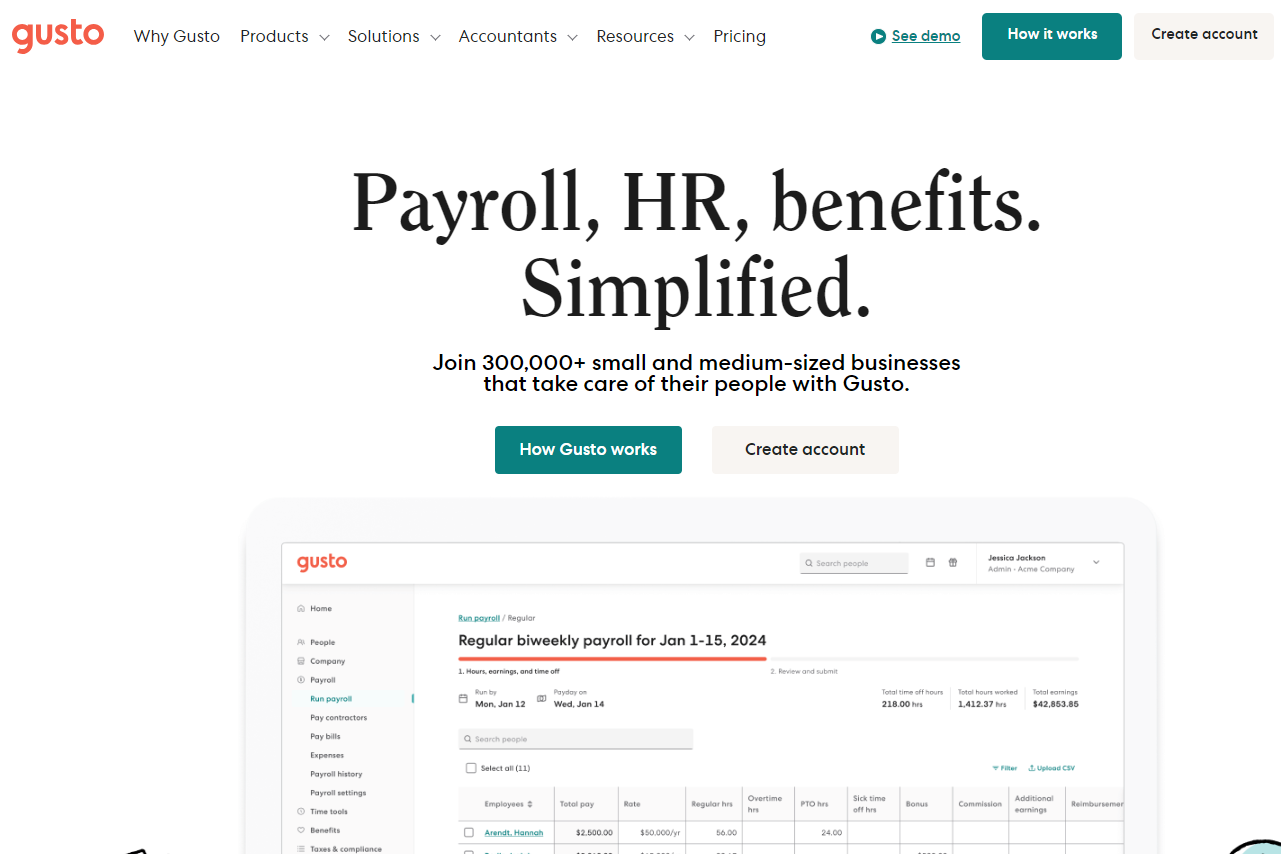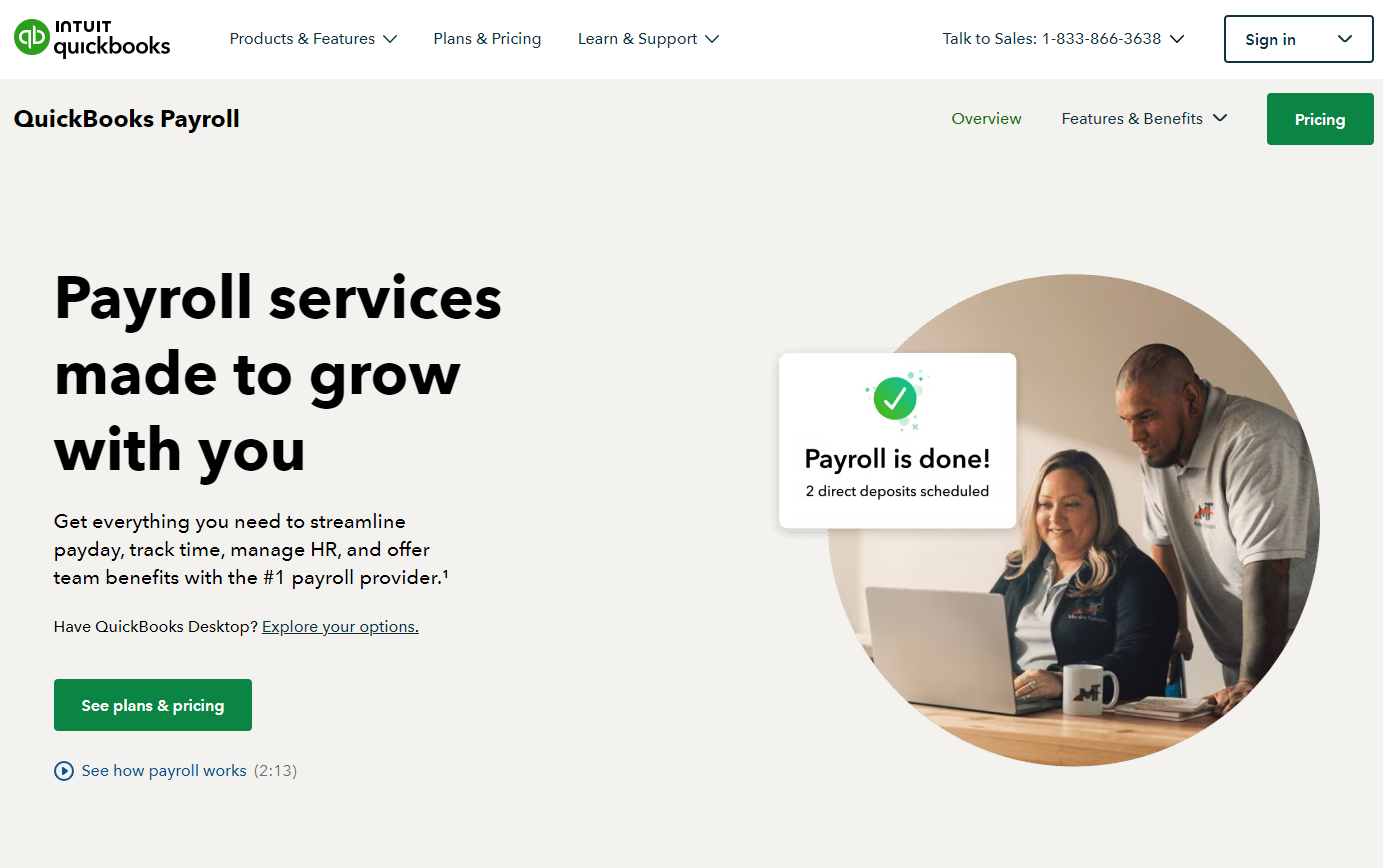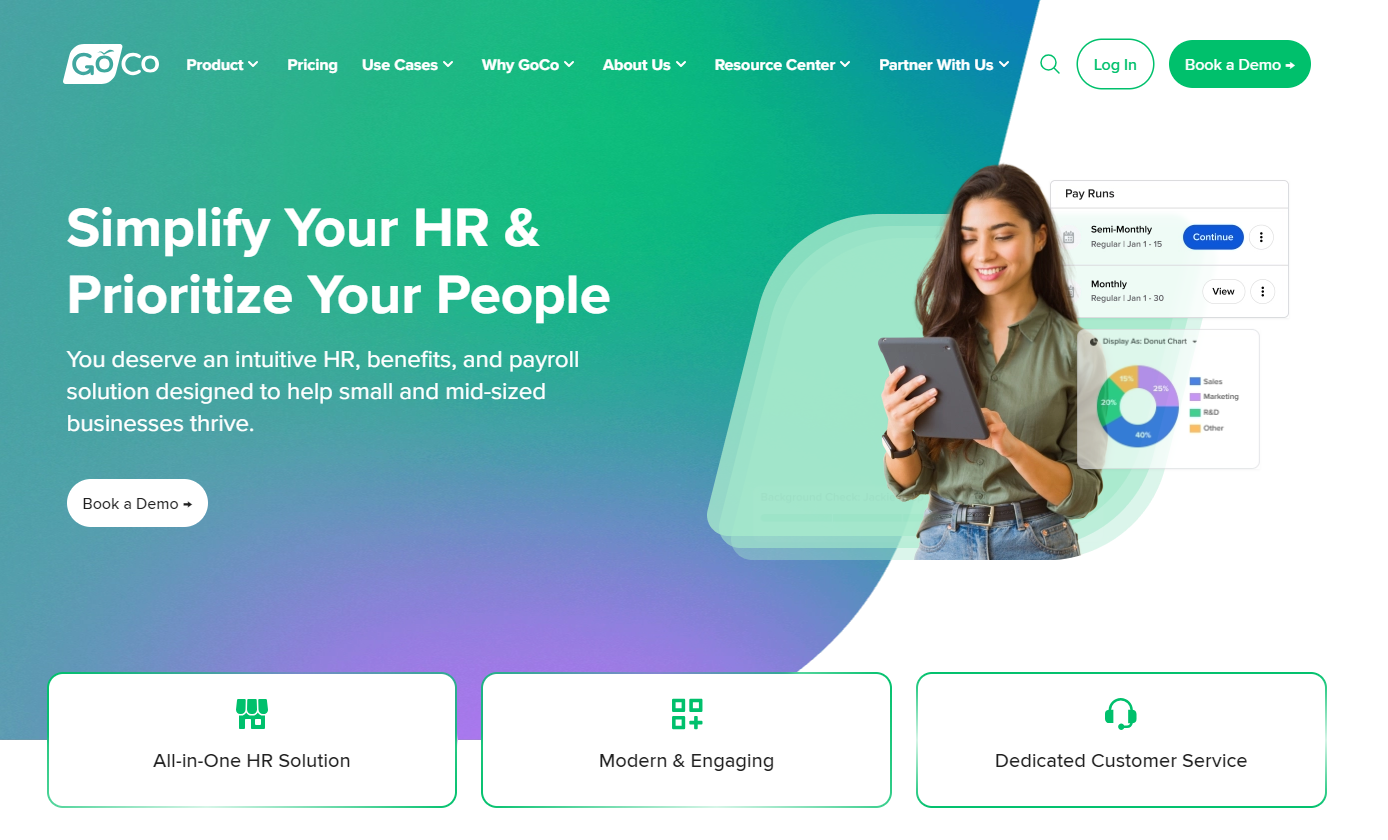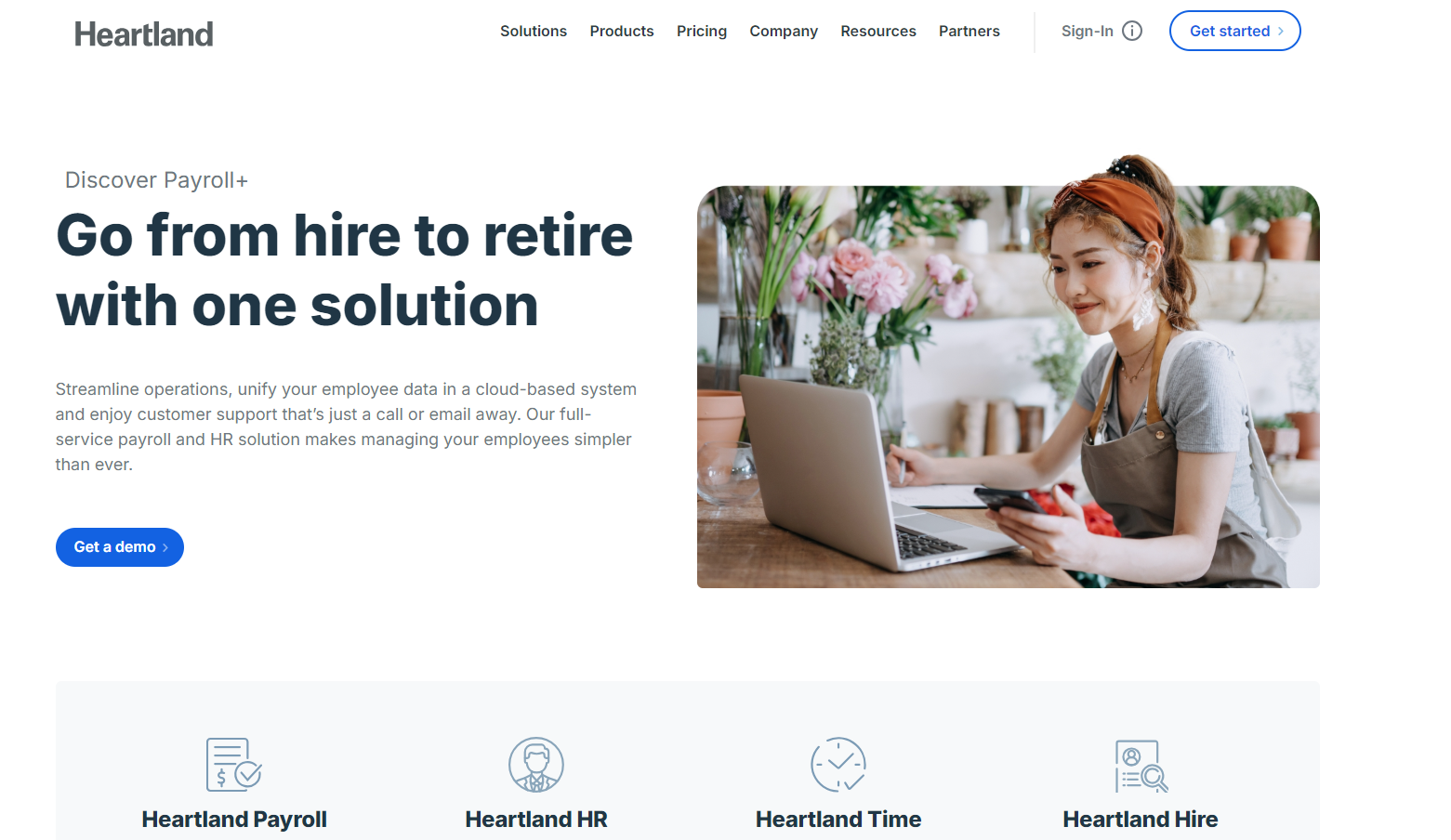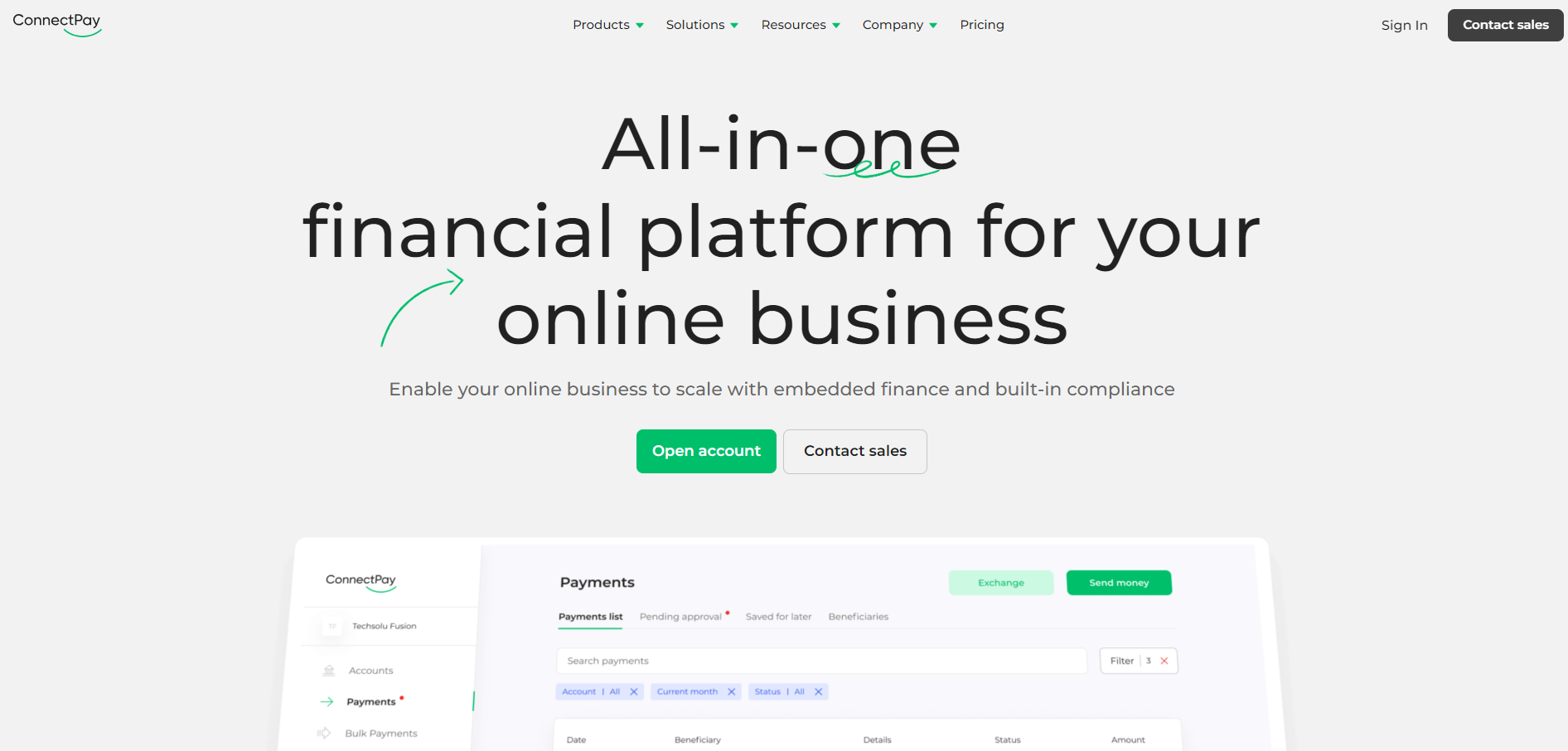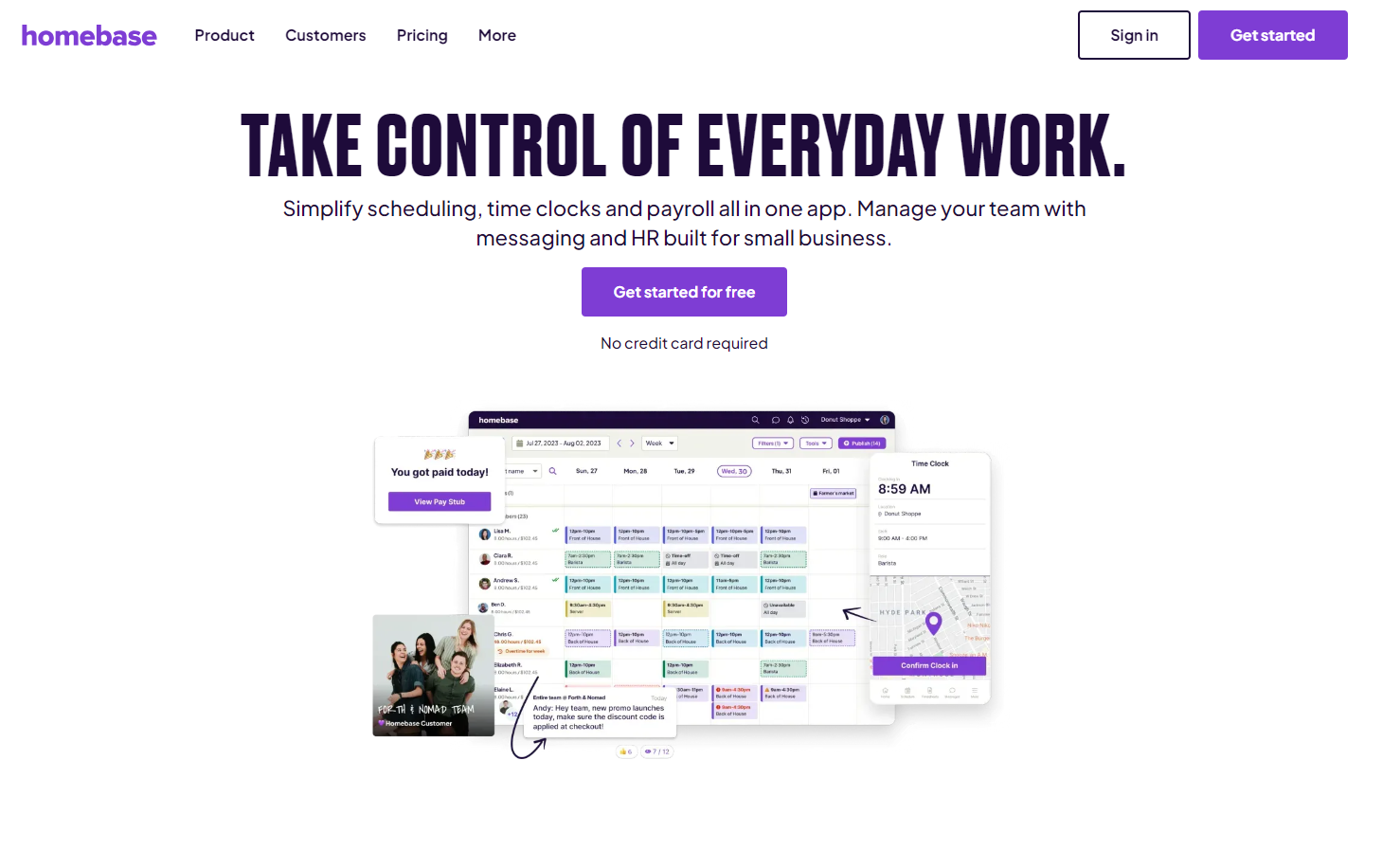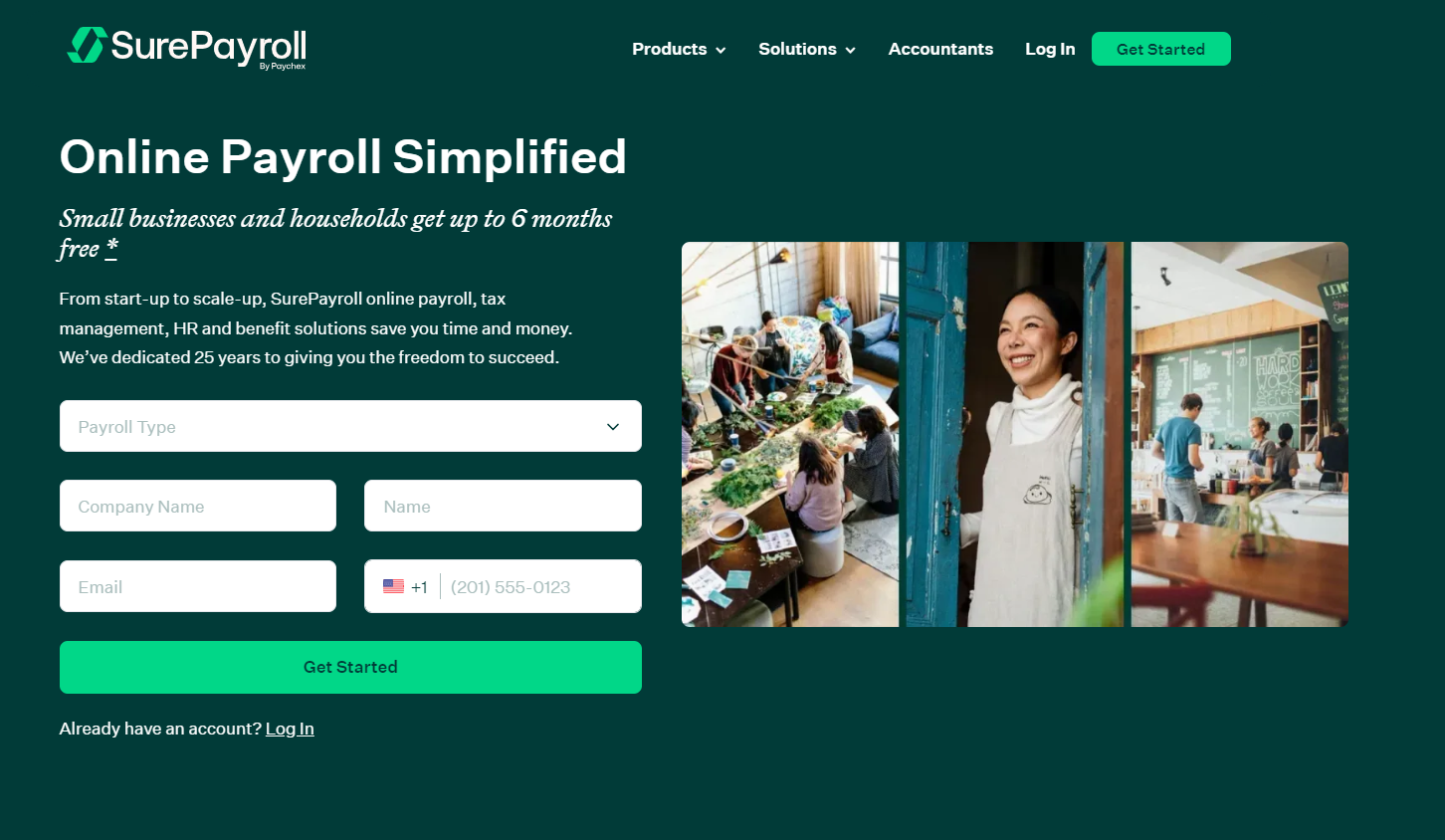
Managing payroll can be one of the most time-consuming tasks you face as a small business owner. Beyond calculating hours and salaries, you also juggle deductions, taxes, and ever-changing compliance regulations. It’s easy for small errors to sneak in, which could lead to costly penalties and frustrated employees.
You want a system that simplifies the payroll process and ensures accuracy and peace of mind. After all, your time is precious, and handling payroll shouldn’t prevent you from focusing on growth and building meaningful connections with your team.
This article will discuss the best payroll software options for small businesses like yours. We’ll review software that offers tools to streamline payroll management so you can focus on what really drives your business forward.
Why Your Small Business Needs Payroll Software
Here are the reasons why payroll software is essential for your business:
Simplify Payroll Processing
Payroll software automates complex calculations, taking the manual burden off your shoulders. Instead of spending hours calculating hours, taxes, and deductions, the software handles these tasks in minutes. This reduces human error and frees up your time for higher-value activities, such as strategizing and business development.
Ensure Compliance with Tax Laws
Staying compliant with evolving tax laws can be daunting. Payroll software keeps track of changes in federal, state, and local tax regulations, automatically adjusting withholdings and filing necessary forms. It reduces the risk of fines due to errors or missed deadlines and offers peace of mind that your payroll is handled accurately.
Streamline Direct Deposits
Manual paychecks can be cumbersome, especially for employees who prefer digital solutions. Payroll software enables direct deposits, ensuring funds land promptly in your employees’ accounts. This builds trust and satisfaction. Employees can count on timely, hassle-free payments, even if they’re away on payday.
Track Time and Attendance Accurately
For many small businesses, time tracking is essential for calculating wages. Payroll software with integrated time-tracking features simplifies this process by automatically pulling employee hours to process payroll. The software eliminates the need for manual input, minimizing the chance for discrepancies and ensuring accuracy.
Enhance Employee Self-Service
With payroll software, employees can access their pay history, tax documents, and personal information without consulting HR. This self-service capability empowers your staff and reduces administrative inquiries. It allows you to focus on other aspects of your business.
Simplify Contractor and Employee Management
Payroll software often includes tools for handling different hires, such as contractors or remote workers. By managing payroll across various employee types, the software helps you stay organized. It ensures everyone gets paid according to their classification, meeting your legal obligations.
Automate Tax Filing
Filing taxes accurately and on time can be stressful. Payroll software typically includes automatic filing options for payroll taxes, taking care of federal, state, and local filings on your behalf. This automation helps prevent penalties and ensures you meet all your tax responsibilities seamlessly.
Save on Long-Term Costs
While payroll software comes with an upfront cost, saving you money over time can be a worthwhile investment. Automation reduces the likelihood of costly errors and penalties while improving efficiency. In addition, you save time you can redirect toward revenue-generating activities. This amplifies your business’s overall productivity.
10 Key Features of Payroll Software to Look For
Below are some of the features you should look out for when shopping for a payroll software:
1. Automated Payroll Processing
Automated payroll processing eliminates manual calculations and the potential errors associated with them.
Small business payroll software handles every detail, including calculating hours, deductions, taxes, and bonuses. It allows you to focus on strategic business tasks rather than payroll.
Automated processing ensures you meet all deadlines for pay periods and tax filings. This reduces the risk of penalties. It also makes payroll consistent and predictable, which employees appreciate as they can rely on timely payments.
2. Direct Deposit
Direct deposit is a must-have feature that deposits employees’ wages and payroll advances directly into their bank accounts. This method reduces the time and costs associated with printing checks and provides a seamless experience for employees.
It enhances convenience, as funds become accessible to employees immediately, regardless of location. For small businesses, direct deposit minimizes administrative work and prevents issues with lost or delayed checks. It helps maintain smooth payroll cycles.
3. Tax Filing and Compliance
Payroll software that automates tax filing and compliance keeps you current with federal, state, and local tax laws. Tax regulations change frequently, and non-compliance can result in fines or legal repercussions.
Payroll software updates tax rates, applies the correct deductions, and files payroll taxes automatically. Some systems can generate and submit end-of-year tax documents like W-2s or 1099s. Automated compliance helps you avoid the hassle of manually tracking regulatory changes and ensures that tax filings are accurate and on time.
4. Employee Self-Service Portals
Self-service portals allow employees to access personal payroll information, including pay stubs, W-2s, and leave balances. This feature benefits both employees and employers. Employees get immediate access to their data, reducing HR inquiries, and employers save time by empowering staff to manage basic payroll-related needs independently.
A well-designed self-service portal supports data accuracy, as employees can update personal information. Enhanced transparency and accessibility improve employee satisfaction and decrease administrative workloads.
5. Time Tracking Integration
Effective payroll software integrates time tracking to ensure payroll accuracy for employees with varied schedules or overtime. Time tracking features allow employees to clock in and out digitally, with data synced directly to the payroll system.
This integration eliminates manual data entry, reduces errors, and accurately pays employees for their work hours. Such integration also keeps detailed attendance records, which can be useful for audit trails, labor compliance, and productivity management.
6. Payroll Reporting
Comprehensive payroll reporting is crucial for understanding payroll expenses and making data-driven decisions. Payroll software often includes standard and customizable reports that help you track tax liabilities, employee earnings, and departmental costs.
Detailed payroll reports provide insights into labor expenses, overtime trends, and tax obligations. They allow you to manage costs effectively and meet regulatory requirements. Customizable reports can be tailored to your business’s needs. This offers a deeper understanding of how payroll impacts your finances.
7. Wage Garnishment Management
In our experience, payroll software simplifies the often complex process of managing wage garnishments for businesses. Wage garnishment management tools automatically calculate and withhold amounts according to court orders or tax mandates, ensuring timely and accurate deductions.
This feature is particularly valuable as it helps employers stay compliant with legal requirements and reduces the risk of errors that could lead to penalties. With software handling these deductions, employers can be confident that garnishments are managed properly and consistently.
8. Scalability
As your business grows, your payroll needs will evolve. Scalable payroll software accommodates this growth by supporting additional employees, more complex payroll structures, and enhanced features without compromising performance.
Look for software that offers modular or tiered plans. This allows you to add functionalities as needed. Scalable software is a forward-looking solution that ensures continuity in payroll processes while keeping costs manageable as your business scales.
9. Expense Reimbursement
Expense reimbursement features allow employees to submit expense claims, such as travel or supply costs, directly through the payroll system. Payroll software with reimbursement functionality streamlines the approval and payment process. It ensures accurate and timely payouts.
This feature provides visibility into expenses, helping businesses track costs and manage budgets more effectively. Automating expense reimbursement also creates a smooth experience for employees. This is because they receive reimbursements faster and with less administrative hassle.
10. Security and Data Protection
Payroll software stores sensitive information, including personal employee data and financial records. Robust payroll security measures like encryption, two-factor authentication, and access controls are essential for protecting this data from unauthorized access or breaches.
Top payroll solutions provide secure, cloud-based storage to protect data offsite and incorporate industry-grade security protocols to safeguard information. Choosing software with strong security features minimizes the risk of data breaches. It offers peace of mind to both employers and employees.
9 Best Payroll Systems for Small Businesses
Below are some of the best payroll software for small businesses:
1. Gusto Payroll
Gusto is a full-service payroll solution tailored for small and medium-sized businesses. This software offers a variety of HR, benefits administration, and payroll services. Its user-friendly platform streamlines payroll, tax filing, and employee benefits, including most U.S. states’ health insurance and retirement plans.
Gusto’s monthly pricing provides affordable options for growing businesses with added tools for hiring, onboarding, and time tracking. Its flexibility, automated tax compliance, and integrations make it popular among businesses looking to manage payroll efficiently without needing in-depth payroll knowledge.
Main Features
- Automated Payroll: Unlimited payroll runs with automatic tax calculations and filings.
- Benefits Administration: Health insurance, 401(k), commuter benefits, and more.
- Time Tracking and PTO Management: Track hours, manage time-off requests, and sync with payroll.
- Employee Self-Service Portal: Employees can access pay stubs, tax forms, and onboarding features.
- Hiring and Onboarding Tools: Includes background checks, customizable offer letters, and compliance documentation.
- Custom Reporting: Configurable payroll and financial reports to meet specific business needs.
- Third-Party Integrations: Connects with QuickBooks, Xero, FreshBooks, and more.
Pros:
- Affordable pricing with flexible plan options.
- Automated payroll, tax filings, and end-of-year forms.
- Extensive benefits and HR support options.
- Simple to set up with a user-friendly interface.
- Integrates well with accounting and HR apps.
Cons:
- Limited customer support for basic plans.
- Health benefits not available in all states.
- No same-day deposit or 24/7 support options.
2. QuickBooks Payroll
QuickBooks Payroll is an Intuit product that integrates seamlessly with QuickBooks Online. It provides full-service payroll and HR support to small and midsize businesses. This payroll service automates payroll, tax filing, and benefits administration and offers same-day direct deposit for higher plans.
Known for its intuitive interface, QuickBooks Payroll is ideal for businesses already using QuickBooks. This is because it enables effortless integration across accounting and payroll functions. However, some users have reported limited customer support and higher-than-average costs compared to other providers.
Main Features:
- Automatic Payroll Runs: Run payroll automatically on a set schedule.
- Same-Day Direct Deposit: Available on Premium and Elite plans.
- Tax Penalty Protection: Covers up to $25,000 for errors on the Elite plan.
- Comprehensive Payroll Reporting: Tracks employee wages, deductions, and leave.
- Mobile App: Manage payroll and time tracking from iOS and Android.
Pros:
- Easy setup and integration with QuickBooks.
- Robust time tracking and real-time reporting features.
- Strong tax accuracy and penalty protection.
Cons:
- Higher cost with additional fees for some features.
- Limited HR features and support on lower-tier plans.
3. Square Payroll
Square Payroll is an affordable, easy-to-use payroll solution for businesses of all sizes, especially those in retail and service sectors. It handles employee and contractor payroll and provides automatic tax filing and payment.
Square Payroll’s simplicity is a key feature. It focuses on payroll essentials like time tracking, direct deposits, and basic benefits integration without extensive HR capabilities. Its competitive pricing, especially for contractor-only payroll, is ideal for online businesses, small business owners or gig-based operations.
Main Features
- Automatic Tax Filing: Calculates and files federal, state, and local taxes.
- Flexible Payment Options: Direct deposit, manual check, and pay cards.
- Benefits Integration: Health, dental, and vision benefits available through partner providers.
- Employee Self-Service Portal: Employees access pay stubs, tax forms, and benefits.
- Built-In Time Tracking: Integrates directly with Square POS for shift-based operations.
Pros:
- Affordable and straightforward, with flexible plan options.
- Ideal for retail, hospitality, and contractor-heavy businesses.
- No setup fees and a free contractor-only plan.
Cons:
- Limited HR tools and benefits options.
- Does not include more advanced reporting and customization features.
4. GoCo
GoCo offers a unique combination of payroll, HR, and benefits management, making it an attractive solution for small businesses seeking a versatile platform.
It stands out for its customizable workflows. They enable businesses to automate HR processes like onboarding, benefits enrollment, and time tracking. While GoCo does not handle payroll processing directly, it integrates with leading payroll providers to streamline payroll data entry. Its cloud-based platform also includes document management and compliance features, making it an all-in-one solution for HR needs.
Main Features
- Customizable HR Workflows: Automate onboarding, benefits, and compliance tasks.
- Payroll Integration: Syncs with popular payroll providers for streamlined data.
- Benefits Administration: Manages employee benefits enrollment and tracking.
- Time and Attendance Tracking: Integrates with payroll to ensure accurate payments.
- Document Management: Store and manage employee documents with compliance support.
Pros:
- Highly customizable HR workflows to fit unique business needs.
- Integrates well with existing payroll systems.
- Robust compliance and document management features.
Cons:
- No direct payroll processing, requiring a separate payroll provider.
- Less suitable for companies needing a standalone payroll solution.
5. Heartland Payroll+
Heartland Payroll+ is a full-service payroll platform designed for small and medium-sized businesses. It combines payroll processing with HR and compliance support. Known for its user-friendly interface and helpful customer support, it includes features like automated payroll, tax filing, and new hire onboarding.
While effective for payroll basics, it lacks built-in benefits administration and requires additional costs for advanced HR and time-tracking features, which some users find limiting.
Main Features
- Payroll Processing: Calculates wages and handles direct deposits.
- Tax Compliance: Manages federal, state, and local tax filings.
- Onboarding Tools: Simplifies hiring with digital forms and compliance support.
- Employee Self-Service: Allows access to pay stubs and personal information.
Pros:
- High-quality customer support and training resources.
- Effective payroll automation and onboarding tools.
Cons:
- Additional costs for HR and time tracking.
- Limited benefits administration compared to competitors.
6. ConnectPay
ConnectPay focuses on providing straightforward payroll services for small businesses. It’s known for efficiently handling the essentials of payroll and compliance. This software has services that cater primarily to companies needing simple payroll management without extensive HR integrations.
Although ConnectPay doesn’t offer an in-depth HR suite, it integrates with time-tracking tools and handles tax filing for multiple jurisdictions, making it a reliable, no-frills payroll option.
Main Features
- Payroll and Compliance: Processes wages and handles multi-state tax filing.
- Basic HR Compliance: Supports basic HR needs like new hire reporting.
- Third-Party Integrations: Works with time-tracking and benefits platforms.
Pros:
- Straightforward, efficient payroll processing.
- Affordable with simple pricing structures.
Cons:
- Lacks advanced HR features.
- Limited benefits and employee self-service options.
7. ADP TotalSource
ADP TotalSource is a professional employer organization (PEO) service that offers comprehensive payroll and HR outsourcing to businesses of all sizes. It provides payroll, benefits, compliance, and risk management, all supported by ADP’s extensive network.
It’s designed for businesses seeking an all-inclusive HR solution with access to benefits administration, retirement plans, and compliance support, which are integrated into the payroll platform.
Main Features
- Full-Service Payroll and Tax Management: Automates payroll and handles compliance.
- Comprehensive Benefits Administration: Offers retirement, health, and wellness plans.
- HR Support and Risk Management: Provides HR consulting and compliance tools.
- PEO Services: Acts as a co-employer for managing HR responsibilities.
Pros:
- Extensive HR and payroll features in a single platform.
- Access to a broad range of employee benefits and compliance tools.
Cons:
- Higher cost due to comprehensive services.
- May be too complex for small businesses needing only payroll.
8. Homebase
Homebase is a payroll and scheduling platform designed for retail, restaurant, and hospitality businesses. Its easy-to-use scheduling and time-tracking tools are ideal for companies with hourly workers.
The software offers basic payroll processing tax filing, and integrates directly with popular point-of-sale systems, making payroll and employee management seamless. However, it lacks advanced HR features and benefits management in larger platforms.
Main Features
- Time Tracking and Scheduling: Enables shift scheduling and integrates with POS systems.
- Payroll Processing: Basic payroll with tax filings.
- Employee Self-Service: Employees can clock in and view schedules.
Pros:
- Effective time-tracking and scheduling tools for hourly workers.
- POS integration for payroll and shift management.
Cons:
- Limited HR and benefits options.
- Not ideal for businesses with complex payroll needs.
9. SurePayroll
SurePayroll is a payroll solution tailored to small businesses. It offers both full-service and self-service payroll options. It automates payroll calculations, tax filings, and year-end reporting. This makes it affordable for companies that need reliable payroll processing with minimal HR features.
SurePayroll is easy to use and has competitive pricing, though its HR features are basic compared to more comprehensive platforms.
Main Features
- Automated Payroll and Tax Filing: Handles payroll runs, tax calculations, and filings.
- Self-Service Options: Available for small businesses that want hands-on control.
- Basic HR Tools: Simple employee onboarding and compliance features.
Pros:
- Affordable and straightforward for small businesses.
- Provides reliable payroll and tax support.
Cons:
- Limited HR functionalities.
- Less suited for businesses needing extensive HR support.
Final Thoughts
Choosing the right payroll software can be transformative for small to medium-sized businesses. It can save time and resources while ensuring compliance with tax and labor laws.
When evaluating options, look beyond the initial costs and assess factors like scalability, ease of use, customer support quality, and integrations with other tools you rely on. Each platform brings unique strengths, but the best choice will align with your current needs and future growth plans.
Are you a small or medium-sized business owner ready to take the next step in growing your business? E-Boost Partners specializes in helping entrepreneurs like you access the funding needed to scale your operations. Visit E-Boost Partners to learn how to secure the financial support you need to grow confidently.




